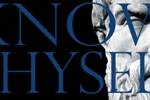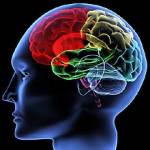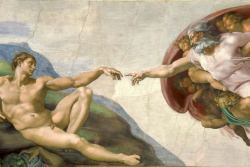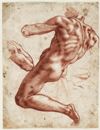Links to my syllabi, readings, PowerPoints, video lectures, and other supporting materials.
Jump to: Biomedical Ethics (PHIL 256) * Business and Economic Ethics (PHIL 325) * Philosophy of Science (PHIL 330) Introduction to Philosophy (PHIL 103) * Modern Intellectual History (HIST 103) * Contemporary European Philosophy (PHIL 313) * Philosophy of Art (PHIL 349) * Free Speech and Censorship (PHIL 345) * Logic (PHIL 221) * Philosophy of Religion (PHIL 329) * Philosophical Foundations of Education (EDUC 605) * Entrepreneurship and Ethics (PHIL 376a) * Capitalism in the Modern World (PHIL 376b) * Ethics (PHIL 122) * Business Ethics (MGMT 441).
Introduction to Philosophy
PHIL 103:
Philosophy asks the big questions of life: What is it to be a fully developed human being? Am I in control of my destiny? What kind of world are we living in — for example, do gods or a God exist? How do we know these things — should we believe based on tradition, feelings, faith, evidence? And what difference does it make — what is the best kind of life to live? We will grapple with fundamental philosophical issues and discuss the views of major thinkers in the Western intellectual tradition.
Readings and other course materials: Introduction to Philosophy — Course Modules.
Ethics

PHIL 122:
This course investigates the best arguments on moral issues such as affirmative action, sex and love, torture, capital punishment, welfare, and legalizing drugs. We will also look at several relevant theoretical issues in ethics — for example, the debates over egoism and altruism, relativism and universalism, rights, virtue, and justice.
Course Materials
Logic
PHIL 221
This course develops skills for distinguishing good and bad arguments. We will study logic in the classical and modern traditions, following the principles discovered by Aristotle and developed by subsequent logicians. We will emphasize applying logical techniques to real-life arguments.
Course Materials
Business and Economic Ethics
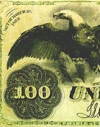
PHIL 325: Business and Economic Ethics
Of the endeavors that have contributed to the quality of human life, business ranks with science, art, and education. Yet like all human endeavors — especially innovative endeavors — business raises its share of ethical challenges. We discuss crucial theoretical issues such as the debates over egoism and altruism and free-market capitalism and socialism; competing accounts of rights, justice, profits, and competition; and employer-employee and business-consumer relations. We discuss the practical applications of those issues through real-life case studies.
Course Materials.
Philosophy of Religion
We will investigate the full range of philosophical issues on religion:
* Metaphysical issues about the existence and nature of a god or gods, creation versus eternal evolution;
* Epistemological issues about reason, experience, faith, mysticism, and accepting tradition;
* Ethical issues about human nature, sin, virtues, and the meaning of life;
* Political issues about toleration and enforcement, separating church and state, and education.
In doing so we will read and discuss representatives of a wide range of perspectives on religion:
* Original Christian, Buddhist, Jewish, and Islamic writings;
* A philosophical atheist (Smith);
* A philosophical Christian (Lewis);
* A philosophical Muslim (Qutb)
* And other essays from a variety of perspectives.
Course Materials
Biomedical Ethics
PHIL 256: Biomedical Ethics syllabus [PDF]
Reading and Viewing: Biomedical Ethics — Course Modules page.
Research Project Proposal template [Word]
Philosophy of Science
PHIL 330: Philosophy of Science syllabus [pdf]
Reading and Viewing: Philosophy of Science — Course Modules page.
Research Project Proposal template [Word]
Free Speech and Censorship
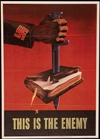
PHIL 345: Syllabus and Schedule [pdf]
Who should decide what books are read? Should pornography be censored? What about politically rebellious pamphlets? Or the advertising of tobacco on television? Or hate language that attacks a person’s sex, race, or ethnic origin? Should church and state be separated? If the government does not fund some artists on the grounds that their work is offensive, is that censorship? In this course, we will study what some of the greatest minds in history have argued about free speech and censorship in Art, Politics, Religion, Business, Science, and Sex.
Reading:
Plato, excerpt from Book 10 of Republic.
Galileo Galilei, “Letter to the Grand Duchess Christina” (1615).
John Locke, excerpts from A Letter concerning Toleration (1689).
John Stuart Mill, Chapters 1 and 2 of On Liberty (1859).
Modern Intellectual History, 1600-1900
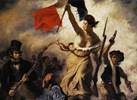
The modern era in Western Civilization saw revolutionary changes in all areas of life—religion, science, philosophy, engineering, economics, politics, and art. The course includes lectures and Friday seminar discussions.
Syllabus and Schedule [pdf].
Reading and Viewing:
Course Readings [pdf] from Galileo, Locke, Beccaria, Rousseau, Smith, Jefferson, Madison, Wollstonecraft, Wordsworth, Marx, Darwin, Nietzsche, and others.
PowerPoint files to accompany my lectures: 1. Introduction. 2. The Renaissance Context. 3. England to the Glorious Revolution. 4. Justice and Modernizing the Law. 5. From Feudal to Modern Business and Economics. 6. The American Enlightenment. 7. The Battle for Women’s Liberty and Equality. 8. The Enlightenment. 9. The Enlightenment in France. 10. The French Revolution. 11. Romanticism. 12. The Battle against Slavery and Serfdom. 13. Human Nature and the New Biology.
Philosophical Foundations of Education
EDUC 605: Syllabus and Schedule [pdf]
In this course we cover the major philosophical issues that bear directly upon education, read the works of philosophers — Plato, Locke, Kant, Dewey, Montessori, and others — who have influenced education greatly, and we look at several systems of educational philosophy.
Reading and Viewing:
My course lectures on video. (Also full playlists of the lectures at YouTube.)
Supplemental booklet: Philosophical Foundations of Education [pdf].
Contemporary European Philosophy
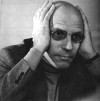
PHIL 314: Syllabus and Schedule [pdf]
In this course we investigate several major European philosophies of the nineteenth and twentieth centuries. Thinkers we will cover include Friedrich Nietzsche, Karl Marx, Martin Heidegger, Friedrich Hayek, Jean-Paul Sartre, and Albert Camus.
Reading:
Selections from Marx, Mussolini, and Goebbels [pdf].
Organizational Ethics
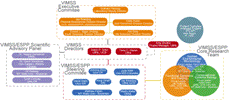
BSMS 315: Syllabus and Schedule [pdf].
The purpose of the study of ethics is to develop a set of moral principles to guide individual and social action.
* What core values and virtues should individuals embody?
* What is the value of organizations?
* What core values and virtues should organizations embody?
* Who should set the terms of production, consumption, and trade?
* How should prices be established?
* What counts as a fair trade?
* Who should control more abstract values such as information?
In this course we will integrate theoretical debates over ethical principles with controversies over classic and contemporary organizational actions.
Philosophy of Art
PHIL 349: Syllabus and Schedule [pdf]
Great artists probe the central issues of the human condition, yet in a different way than do philosophers, psychologists, and political scientists. How does art do what it does—whether it be a piece of music you play over and over again, a novel you hate to see end, or a movie that makes you laugh and cry? And what is art? Can it be defined? What is the difference between good, mediocre, and incompetent art? Or are no such distinctions valid? Is it possible to say of a given piece of art, “This is great art, but I don’t like it”?
In this course we will raise these and other philosophical questions about art, trying to understand the nature of an enterprise that ranges from music to sculpture to dance to painting to poetry to motion pictures. We will read reflections on art by philosophers, artists, and other commentators.
Viewing:
My Art Images page with links to sections on Classical Greece, Renaissance Italy, the Dutch Golden Age, Nineteenth-century France, and Modern and Postmodern.
Entrepreneurship and Ethics

ECON/PHIL 376: Syllabus and Schedule [pdf]
This course integrates entrepreneurship, business history, and business ethics. It consists of case studies of major entrepreneurs in modern history, e.g., Commodore Vanderbilt, Andrew Carnegie, John D. Rockefeller, John Johnson, Martha Stewart, Bill Gates, and others. Each case study involves learning the entrepreneur’s business practices and how he or she achieved business success. What traits did they have: intelligence, risk-tolerance, leadership, ambition, ruthlessness? And part of each case study involves learning about the ethical controversies: Were they “predatory competitors,” “monopolists,” “robber barons” — or highly productive individuals who traded with others to win-win advantage? Students read histories and biographies by both proponents and detractors.
Capitalism in the Modern World

ECON/PHIL 376: Syllabus and Schedule [pdf]
This course integrates economics with ethics by focusing on two key questions: What is capitalism? Is capitalism moral? Students discuss major pro-capitalist writers (e.g., Mises, Hayek, Rand, Friedman, Phelps) and major anti-capitalist writers (e.g., Rousseau, Marx, Heidegger, Marcuse, Foucault). We discuss the competing theories about what capitalism is; the moral debates over economic liberty, economic equality, and economic justice; whether capitalism is essentially win-win or zero-sum; and the debates over capitalism’s historical connections with the Industrial Revolution, whether it sped or slowed the elimination of slavery, and whether it improved or made worse race relations and the status of women.
Supplemental Materials
The online Texts in Philosophy page.
The Debate Evaluation Rubric
Return to the StephenHicks.org main page.

